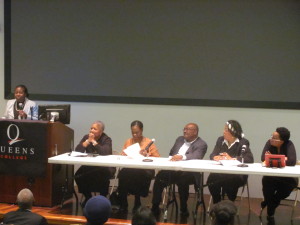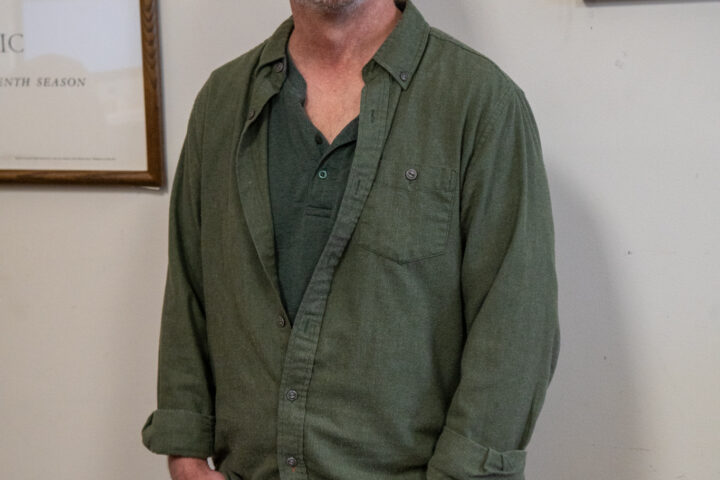
The Africana Studies Program and the National Congress of Black Women hosted a symposium reflecting on the Civil Rights Movement as well as ways for black youths to progress in terms of education on Oct. 23 at Rosenthal Library 230.
The forum was broken up into two parts. The first half dealt with the issue of affirmative action and voting rights for African-Americans. The second segment focused on providing a unique program for black students.
The event began with Evelyn Julmisse, the acting director of the Africana Studies Program, welcoming the audience. She introduced Don Capaldi, a community activist and the liason for Rep. Grace Meng (D-NY), who spoke on the significance of the event’s two topics. He stressed the importance of participating in elections and in community issues in order to obtain solutions.
“The folks that vote regularly get regular attention,” Capaldi said.
Faye Williams, president of the National Congress of Black Women, was one of the speakers in the first portion of symposium. Appointed by President Barack Obama as Presidential Scholars Commissioner for 2009 to 2016, she highlighted how important the Civil Rights Movement was in terms of the topics being discussed. In fact, Williams stressed many benefits enjoyed today originate from the struggles of the movement.
“If you’re going to talk about affirmative action or voting rights, [then] you have to start with the Civil Rights Movement,” Williams said.
The Civil Rights Movement refers to the demonstrations and actions during the mid 19th-century where icons such as Martin Luther King Junior pushed for political rights for African Americans who were discriminated against at the time.
During the question-and-answer portion with the audience, Director of Compliance and Diversity of Queens College
Cynthia Rountree responded to the idea of whether the U.S. was a post-racial society. She denied that the U.S. has reached that point as racism is different than it was in the 1960s.
“Racism exists and it is more subtle. It is alive and well and we have to be more vigilant,” Rountree said.
After the first part wrapped up, the discussion focused on education and a STEEM program for young students.
Pauline Murray, director of the National Congress of Black Women Queens chapter, led the discussion by explaining why the decision was made to add economics into the general STEEM program.
“Our schools are not teaching [young students] about economics, [whether] micro or macro. They are not teaching you personal finance,” Murray said.
Aside from stressing the value of a STEEM program, all the speakers spoke on why it was important to continue offering education on other majors as black students, compared to other ethnicities, had low graduation rates in other fields.
According to an investigation by USA Today, black and Hispanic students graduating with degrees in computer-related fields are not likely to immediately receive a job in the tech industry. In fact, students graduate at rates twice that of the jobs offered to them.
Tech firms were criticized for not hiring more minorities into their workforce after it was found, according to USA Today, that two percent of staff members are black at Google, Yahoo and Facebook.
The emphasis was not only on the STEEM program as the idea of school segregation was focused on as well. Some of the speakers referenced a study from the Civil Rights Project of the University of California where it was found that New York State had the highest number of segregated schools across the nation.
Norka Blackman-Richards, academic program manager and assistant director of the SEEK program, spoke on promoting general education with a redefined focus on what students should be taught. She elaborated that society was different during the 1960s and education had to evolve.
“The Civil Rights Act of 1964 brought considerable change. But since 1964, the world has changed. But education, as it is administrated today, has not changed.” Blackman-Richards said.
Sallyanna Bazelais, a senior majoring in biology, felt nervous before attending the event after hearing about a few of the speakers set to talk; however, after the event, she felt motivated and satisfied from what she heard.
“We need to continue moving forward with an appreciation and reflection in the past because a lot of privileges we enjoy today are what people fought for in the past,” Bazelais said.













